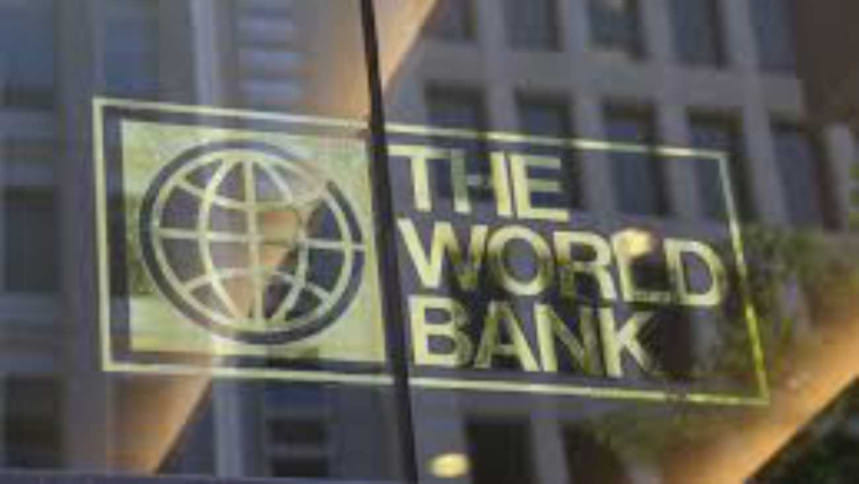Weak banking sector threatens growth prospects

"With this financial sector, it is impossible to graduate to an upper middle-income country and a high-income country."
Bangladesh's ratio of private credit to GDP is one of the lowest among its structural and aspirational peers, found a recent World Bank study -- raising questions about the country's capacity to meet its growth aspirations.
According to the global Financial Development Index, Bangladesh was 95th of 184 countries in terms of financial development (2021 ranking based on 2019 country data), slightly above lower-middle-income economies, but below upper-middle-income economies.
All Bangladesh's structural and aspirational peers have better developed financial institutions, especially in terms of financial depth and access.
"The financial sector's performance will be the key determinant of the country's future economic development," said Nora Dihel, a senior trade economist at the WB, at the launch of the report 'Country Economic Memorandum: Change of Fabric' yesterday.
As Bangladesh aspires to reach upper-middle-income status by 2031, substantial efforts to scale up investment will be needed.
This ambition cannot be achieved through financing sourced from the public sector alone.
Private sector financing, from both domestic and foreign sources, will play a critical role in increasing the per capita GDP.
In Bangladesh, a 1 percentage point increase in private sector credit raises the per capita GDP by 3.8 percentage points, which is the most among the variables tested by the WB model.
And yet, Bangladeshi banks do not have the capacity to supply credit to the private sector in the volume that it needs due to inherent weaknesses, and especially the high load of default loans.
The Washington-based multilateral lender's analysis found that banks with higher default loan ratios supply fewer loans and attract fewer deposits.
Weak corporate governance, poor regulatory enforcement and lack of transparency expose banks in Bangladesh to significant risks and abuse.
The involvement of politically exposed persons as well as owners of large conglomerates in the ownership and management of the banks are becoming a major nuisance and is responsible for the numerous fraud investigations and high default loans in some private and state banks.
In the absence of definitions of "controlling interest" and "ultimate beneficial ownership" as well as deficiencies in the definition of "related parties" that excludes complex interfamilial relationships, among others, the real size of related-party lending can be masked, the report said.
Even with default loans being underestimated, Bangladeshi banks have the highest levels of official default loans among the country's peers (comparable only to India), coupled with very low profitability.
"Related-party lending is a major vulnerability in Bangladesh's financial sector," Dihel said.
Although some restrictions on related-party transactions exist on paper, the regulations are not consistent with international best practices and, in practice, there are few barriers to self-dealing.
For example, to circumvent the Bangladesh Bank's prior approval of loans to directors exceeding a certain amount, directors can borrow from banks other than the one for which they are directors, so as not to be classified as related parties, the report said.
"This phenomenon has reached an alarming size."
At least 20 percent of the total loans in the banking system are being granted to directors, based on WB estimates.
When facing financial difficulties, directors are incentivised to borrow from other banks, directly or through family members, to regularise their position, to avoid termination of office, causing evergreening of loans.
"Various fraudulent schemes reported in the public domain provide anecdotal evidence of this practice."
Over the past decade, large losses occurred due to fraudulent schemes with the involvement of members of the board of directors in Sonali Bank (more than Tk 3,000 crore in losses, 2010–12), BASIC Bank (Tk 4,500 crore, 2009–13), and Padma Bank, formerly Farmers Bank (Tk 3,070 crore, 2017–18), the report said.
"Several related-party transactions are currently under investigation according to the banks' annual reports."
Subsequently, the banks' ability to allocate credit efficiently to the private sector is being constrained.
The corporate governance and risk management frameworks do not provide necessary safeguards, the WB said.
"First, the common practice of having large, overpopulated boards does not facilitate effective oversight of business lines and control functions. The number of independent directors is not sufficient, and often independent directors are selected purely for compliance requirements and they do not exert meaningful influence."
Second, the application of "fit and proper" criteria for boards does not ensure that skills and experience in relevant financial operations are commensurate with the activities of the bank.
Third, internal auditors do not always have sufficient technical skills and impact, leaving gaps in banks' risk management.
Lastly, weak regulatory enforcement on the BB side related to related-party lending and continuous default loan restructuring creates a culture of tolerance of regulatory breaches, the WB said.
Due to the limited powers of the central bank, the regulatory playing field for public and private banks is uneven, creating barriers to fair competition in the banking sector and posing further risks to financial stability.
"Operational independence of Bangladesh Bank is not prescribed in the law, and it is compromised by interference stemming from the ministry of finance's broad mandate for financial sector issues."
Subsequently, banks in Bangladesh have the lowest regulatory capital among the country's peers, driven by the undercapitalisation of state banks.
The Washington-based multilateral lender went on to call for an overhaul of primary legislation such as the Bank Company Act (1991) and the Financial Institutions Act (1993) to bring it in line with international best practices, including the provisions for resolution of problem institutions with minimum cost to the budget.
"Importantly, BB's operational independence should be enhanced so that it has adequate powers for dealing with potential bank distress in a timely and cost-effective manner."
Lenders should be incentivised to recognize default loans promptly and offered a full range of effective in-court and out-of-court resolution instruments for various soured loan classes.
Since Bangladesh's banking sector is already overcrowded, there is an urgent need to strengthen the licensing framework and encourage consolidation, the report added.
With this financial sector it is impossible to graduate to an upper middle-income country and a high-income country, said Selim Raihan, executive director of the South Asian Network on Economic Modelling.
"We have a dominance of actors who have high influence but least interest in the economy," said Raihan, also a professor of the University of Dhaka's economics department.
Planning Minister MA Mannan acknowledged the pressing need for banking sector reforms.
"I can see lots of failure in this sector."
He went on to express his disappointment in the private sector banks.
"I had a hope that the private sector would be so big and aggressive and nimble that the state banks would quietly dissolve and die. But the private sector banks have not done as well."

 For all latest news, follow The Daily Star's Google News channel.
For all latest news, follow The Daily Star's Google News channel. 



Comments